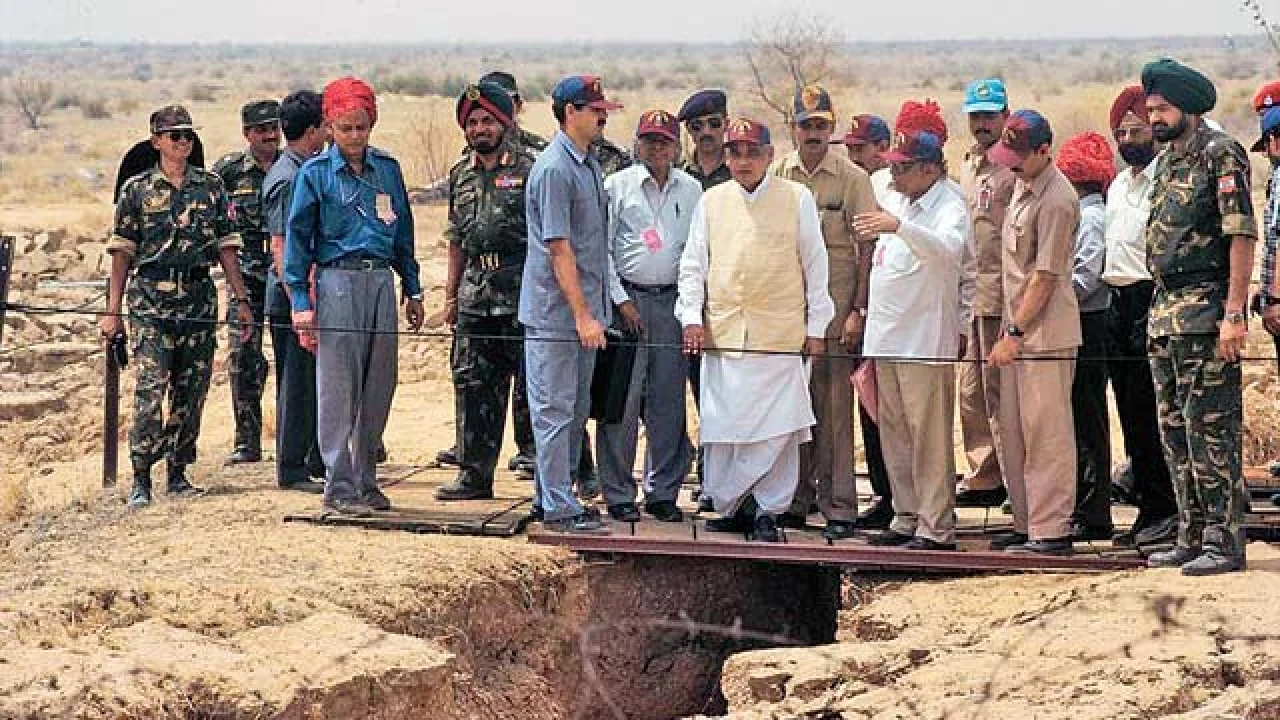 |
| Former PM Atal Ji at Nuclear test spot - India carried out their second nuclear test in May 1998/ |
Along with 25 other countries, Ukraine had also voted in favour of UNSC Resolution 1172 that had condemned the nuclear tests conducted by India.
As Russian troops carry out “special military operations” against Ukraine to “demilitarise” the country, the Ukrainian government is pleading with all major powers to intervene and stop the Russian advance. With Ukraine facing a grave crisis, the Volodymyr Zelenskyy-led government has requested India to intervene and hold talks with Russian President Vladimir Putin, given the special ties between the two countries.
On Thursday, Ukrainian Ambassador to India Igor Polikha urged Prime Minister Narendra Modi to play a more significant role in de-escalating the tensions with Russia as Modi and Putin share a mutual respect. Perhaps, Ukraine understands the hegemony of India and intends to utilise PM Modi’s goodwill to de-escalate the ongoing tensions.
However, Ukraine’s relationship with India was not at all rosy in the past as it is today. The ties between Ukraine and India has seen ups and downs, especially after India decided to go nuclear. It is important to remember that Ukraine was one of those countries that vehemently opposed India’s nuclear tests in 1998 and had condemned India’s actions at the security council following the 1998 nuclear test.
In 1998, the Atal Bihari Vajpayee-led Indian government decided to conduct five nuclear tests and had stunned the world. The nuclear tests – ‘Operation Shakti’ set India on a road that made not just a nuclear power but also assured the country’s long time security interests.
But, Ukraine, along with 25 other countries, had stood against India’s security interests to express grave concern regarding India’s nuclear tests. Ukraine had also voted in favour of UN Resolution 1172 that had condemned the nuclear tests conducted by India.
Following the nuclear tests, the United Nations Security Council had passed a resolution 1172 that had demanded that India refrain from further nuclear tests and had called them to become parties to Non-Proliferation of Nuclear Weapons (NPT) and the Comprehensive Nuclear-Test-Ban Treaty (CTBT) treaties.
In addition, the resolution had asked India to immediately stop their nuclear-weapon development programmes, to cease the development of ballistic missiles capable of delivering nuclear weapons and any further production of fissile material for nuclear weapons. Ukraine had become part of a UN resolution that sought to restrain India from pursuing its strategic objectives.
Most importantly, the UN resolution that Ukraine endorsed had encouraged all states to prevent the export of equipment, materials or technology to India that could in any way assist the country’s programmes for nuclear weapons or for ballistic missiles capable of delivering such weapons.
Today, as we speak, Ukraine faces a huge crisis with an imminent invasion by the Russians. Ukraine is desperate for powerful friends as its ally, the United States of America neither enjoys global hegemony anymore nor commands respect from the rest of the world. Twenty-two years after taking a stand that contradicts India’s security and strategic objectives, Ukraine today wants India to stand behind them and talk to Russians to end the humiliation being meted out upon them. As they say, in international relations, there are no permanent friends or permanent enemies, only permanent interests.




















